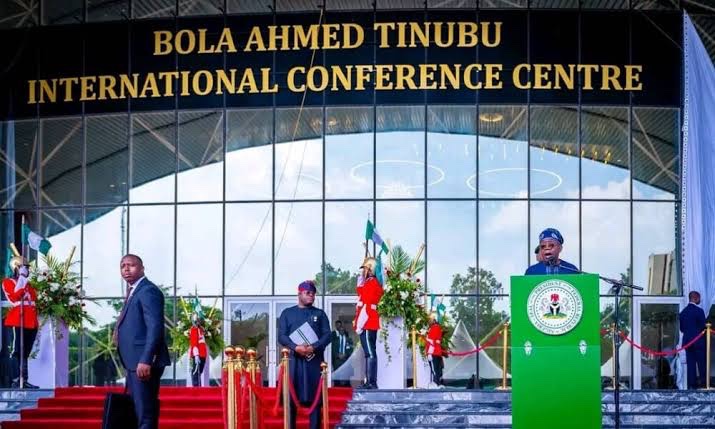Federal Capital Territory Minister Nyesom Wike has staunchly defended the allocation of ₦39 billion for the renovation of the International Conference Centre (ICC) in Abuja, dismissing critics as lacking “good taste.” The statement, made during a recent public address, has ignited widespread debate over the expenditure’s justification, transparency, and alignment with Nigeria’s economic realities. Wike argued that the renovation was essential to restore the ICC to a world-class standard, positioning it as a hub for international events and a symbol of national pride.
The International Conference Centre, a prominent venue in Abuja, has hosted high-profile events since its establishment but had fallen into disrepair in recent years. Wike emphasized that the extensive rehabilitation was necessary to address structural deficiencies, modernize facilities, and enhance the centre’s global competitiveness. He highlighted that the project included upgrades to the building’s infrastructure, conference halls, and technological systems, aiming to attract international conventions and boost Nigeria’s tourism sector.
Critics, however, have questioned the ₦39 billion price tag, equivalent to approximately $23.5 million at current exchange rates, given Nigeria’s economic challenges, including inflation and strained public finances. Public discourse, particularly on platforms like X, reveals a divide: some view the renovation as a necessary investment in national infrastructure, while others argue it reflects misplaced priorities in a country grappling with poverty and inadequate healthcare and education systems. The lack of a detailed cost breakdown or evidence of competitive bidding has fueled accusations of fiscal irresponsibility.
Wike’s comment that detractors lack “good taste” has drawn particular ire, with many interpreting it as dismissive of legitimate concerns about transparency and accountability. Analysts note that such rhetoric risks alienating citizens who expect public officials to prioritize prudent financial management. Similar high-cost projects under Wike’s tenure as FCT Minister, including road construction and urban renewal initiatives, have also faced scrutiny, though supporters credit him with transformative developments in Abuja.
The renovation project, managed by the Federal Capital Development Authority, reportedly involves reputable contractors, but specifics about the procurement process remain scarce. Historical data on the ICC indicates it was built in the 1990s with significant government investment, yet maintenance lapses over the years led to its deterioration. Wike’s administration has prioritized restoring such landmarks to enhance Abuja’s status as a modern capital, but the scale of expenditure has raised questions about value for money.
Public reaction on X reflects polarized sentiments. Some users praise Wike’s vision for a revitalized ICC capable of hosting global summits, potentially generating revenue through event tourism. Others argue that ₦39 billion could have addressed urgent needs, such as healthcare infrastructure or education funding, with one X post estimating that the sum could build multiple primary healthcare centers across Nigeria.
Wike’s defense also touches on the broader context of his tenure as FCT Minister, where he has pursued ambitious infrastructure projects. He has previously cited the need to align Abuja’s facilities with those of other global capitals, arguing that aesthetic and functional upgrades are critical for Nigeria’s international image. However, critics counter that such projects must be balanced against immediate socioeconomic challenges, including unemployment and rising living costs.
Transparency remains a central issue in the debate. Without publicly accessible documentation detailing how the ₦39 billion was allocated—whether for structural repairs, interior design, or technological upgrades—public trust is strained. Experts suggest that publishing a detailed expenditure report could mitigate criticism and demonstrate accountability, a step Wike’s administration has yet to take.
Comparatively, similar projects in other African capitals, such as the renovation of conference centers in Addis Ababa or Nairobi, have been executed at lower costs, though differences in scope and economic context complicate direct comparisons. Nigeria’s history of cost inflation in public projects further fuels skepticism, with past audits revealing overpricing in government contracts. Wike’s insistence on the project’s necessity has not quelled demands for clearer financial oversight.




